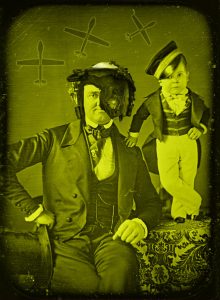 I’ve been watching the steady stream of citizen-captured videos of bad actors in our little democracy. From racist police murders, to super-Karens, to anti-Antifa gun toters exercising intimidation, the mobile phone capture is revealing—and the internet is amplifying—the angry and ugly aspects of society that were once just local phenomena. Traditional media could promote them, but only when the events fit the channel restrictions on content, time, relevance, and taste. Now the channels are constantly expanding and the nascent ugliness is too.
I’ve been watching the steady stream of citizen-captured videos of bad actors in our little democracy. From racist police murders, to super-Karens, to anti-Antifa gun toters exercising intimidation, the mobile phone capture is revealing—and the internet is amplifying—the angry and ugly aspects of society that were once just local phenomena. Traditional media could promote them, but only when the events fit the channel restrictions on content, time, relevance, and taste. Now the channels are constantly expanding and the nascent ugliness is too.
Positive effects of this newfound awareness include policy changes like the requirements of body cameras for police, though some have argued that such videos violate the privacy of the subjects of police enforcement as often as they mitigate illegal behavior on the part of the police. Still, there is no going back. I purchased Google Glass during the beta period and experimented with the unit. I still own it and it still boots up. When they first came out there were reports of violent actions by people who were unhappy being subject to potentially always-on video recording. Now we have “Hey Siri, I’m being pulled over” audio triggers that are designed to enhance one’s recourse in the event of police misbehavior. Meanwhile, drones and license plate scanners by private companies can be subscribed to by police to be able to locate cars anywhere in metro areas quickly and efficiently, while at the same time the legality of attached GPS transponders for tracking suspects is constantly under judicial scrutiny. And facial recognition systems are racially biased, resulting in false-positive arrests of racial minorities (and likely others, too).
There is an entire field of Continental Philosophy that derives from Marxist theory and that goes by the title “critical theory.” It’s critical of modern society mostly and is often laden with abstractions that make it unnecessarily obscure about relatively trivial observations. Nevertheless, reading some of it can be revealing about aspects of our ordinary lives that are drowning in technological change but that we don’t consider, well, very critically. Jürgen Habermas’s concept of “communicative rationality” I do find useful. How do we contend with the jettisoning of formal authority following the Enlightenment when it comes to moral development in democracy? Well, we can be cynical that everyone is just out for themselves, or they are just out for their social group, or race, or class, or we can instead achieve progress by discussing options and coming to shared goals. Yeah, I know, it reads much more obstinately expansive and obscurely in the original German, where all the nouns get compounded into neologisms. Just try to parse Foucault or Derrida in any language if you want deliberate obscurity.
Technology can be viewed as labor saving devices, embedded social constructs that are both influenced and themselves influence society, or pessimistically as tools of control and systematization of our economic and social relations. In other words, critical theory has a bunch of ideas about technology that match exactly what you might think. But, like I said, it may be useful in some ways. One of those ways for me is reconsidering the idea that we can idealize our fellow citizens as being informed or, at least, strongly interested in the concept of communication and rationality to achieve positive moral ends. But we must accept that many are purely instrumental in their engagement with technological systems, with the goal being to generate power or wealth, with the latter often composed out of the former.
This is the P.T. Barnum theory of American democracy, in a way, and is a critique that certainly has been raised against Habermas. Showmanship, razzle-dazzle, stoking the worst fears and greatest hopes, all with technology as a means to the end of disruptive control of the minds of the masses in order to sell them the CPAP cleaners and ridiculous vitamin elixirs that are the staples of the gullible elders searching for solutions and meaning in a changing world.
The cell phone camera as a mechanism for exposing and disrupting oppression is the positive feature of technology, though we have to be on guard against fake videos in this new era of deep fakes, as well. The combination of the centralized surveillance state with the decentralized citizen counter-surveillers certainly has the feel of one of these critical theory dialectical arguments written large in the development of the modern world, which should be appealing to anyone who wants to justify these things among the theoretical Bolsheviks on Parler or Gab. Beware, though, that posting pictures of your feces or threatening death apparently crosses the lines of free speech, even there.
Edits!